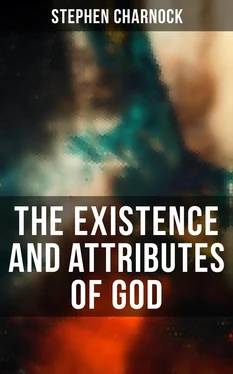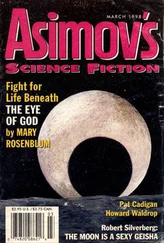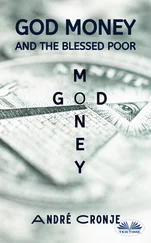Stephen Charnock - The Existence and Attributes of God
Здесь есть возможность читать онлайн «Stephen Charnock - The Existence and Attributes of God» — ознакомительный отрывок электронной книги совершенно бесплатно, а после прочтения отрывка купить полную версию. В некоторых случаях можно слушать аудио, скачать через торрент в формате fb2 и присутствует краткое содержание. Жанр: unrecognised, на английском языке. Описание произведения, (предисловие) а так же отзывы посетителей доступны на портале библиотеки ЛибКат.
- Название:The Existence and Attributes of God
- Автор:
- Жанр:
- Год:неизвестен
- ISBN:нет данных
- Рейтинг книги:5 / 5. Голосов: 1
-
Избранное:Добавить в избранное
- Отзывы:
-
Ваша оценка:
- 100
- 1
- 2
- 3
- 4
- 5
The Existence and Attributes of God: краткое содержание, описание и аннотация
Предлагаем к чтению аннотацию, описание, краткое содержание или предисловие (зависит от того, что написал сам автор книги «The Existence and Attributes of God»). Если вы не нашли необходимую информацию о книге — напишите в комментариях, мы постараемся отыскать её.
The Existence and Attributes of God — читать онлайн ознакомительный отрывок
Ниже представлен текст книги, разбитый по страницам. Система сохранения места последней прочитанной страницы, позволяет с удобством читать онлайн бесплатно книгу «The Existence and Attributes of God», без необходимости каждый раз заново искать на чём Вы остановились. Поставьте закладку, и сможете в любой момент перейти на страницу, на которой закончили чтение.
Интервал:
Закладка:
4. To represent God by a corporeal image; and to worship him in and by that image, is idolatry. Though the Israelites did not acknowledge the calf to be God, nor intended a worship to any of the Egyptian deities by it; but worshipped that God in it, who had so lately and miraculously delivered them from a cruel servitude; and could not in natural reason judge him to be clothed with a bodily shape, much less to be like an ox that eateth grass; yet the apostle brings no less a charge against them than that of idolatry (1 Cor. x. 7); he calls them idolaters, who before that calf kept a feast to Jehovah, citing Exod. xxxii. 5. Suppose we could make such an image of God as might perfectly represent him; yet since God hath prohibited it, shall we be wiser than God? He hath sufficiently manifested himself in his works without images: He is seen in the creatures, more particularly in the heavens, which declare his glory. His works are more excellent representations of him, as being the works of his own hands, than anything that is the product of the art of man. His glory sparkles in the heavens, sun, moon, and stars, as being magnificent pieces of his wisdom and power; yet the kissing the hand to the sun or the heavens, as representatives of the excellency and majesty of God, is idolatry in Scripture account, and a denial of God;395 a prostituting the glory of God to a creature. Either the worship is terminated on the image itself, and then it is confessed by all to be idolatry, because it is a giving that worship to a creature which is the sole right of God, or not terminated in the image, but in the object represented by it; it is then a foolish thing; we may as well terminate our worship on the true object without, as with an image.396 An erected statue is no sign or symbol of God’s special presence, as the ark, tabernacle, temple were. It is no part of divine institution; has no authority of a command to support it; no cordial of a promise to encourage it; and the image being infinitely distant from, and below the majesty and spirituality of God, cannot constitute one object of worship with him. To put a religious character upon any image formed by the corrupt imagination of man, as a representation of the invisible and spiritual Deity, is to think the Godhead to be like silver and gold, or stone graven by art and man’s device.397
III. This doctrine will direct us in our conceptions of God, as a pure perfect Spirit, than which nothing can be imagined more perfect, more pure, more spiritual.
1. We cannot have an adequate or suitable conception of God: He dwells in inaccessible light; inaccessible to the acuteness of our fancy, as well as the weakness of our sense. If we could have thoughts of him, as high and excellent as his nature, our conceptions must be as infinite as his nature. All our imaginations of him cannot represent him, because every created species is finite; it cannot therefore represent to us a full and substantial notion of an infinite Being. We cannot speak or think worthily enough of him, who is greater than our words, vaster than our understandings. Whatsoever we speak or think of God, is handed first to us by the notice we have of some perfection in the creature, and explains to us some particular excellency of God, rather than the fulness of his essence. No creature, nor all creatures together, can furnish us with such a magnificent notion of God, as can give us a clear view of him. Yet God in his word is pleased to step below his own excellency, and point us to those excellencies in his works, whereby we may ascend to the knowledge of those excellencies which are in his nature. But the creatures, whence we draw our lessons, being finite, and our understandings being finite, it is utterly impossible to have a notion of God commensurate to the immensity and spirituality of his being. “God is not like to visible creatures, nor is there any proportion between him and the most spiritual.”398 We cannot have a full notion of a spiritual nature, much less can we have of God, who is a Spirit above spirits. No spirit can clearly represent him: the angels, that are great spirits, are bounded in their extent, finite in their being, and of a mutable nature. Yet though we cannot have a suitable conception of God, we must not content ourselves without any conception of him. It is our sin not to endeavor after a true notion of him: it is our sin to rest in a mean and low notion of him, when our reason tells us we are capable of having higher: but if we ascend as high as we can, though we shall then come short of a suitable notion of him, this is not our sin, but our weakness. God is infinitely superior to the choicest conceptions, not only of a sinner, but of a creature. If all conceptions of God below the true nature of God were sin, there is not a holy angel in heaven free from sin; because, though they are the most capacious creatures, yet they cannot have such a notion of an infinite Being as is fully suitable to his nature, unless they were infinite as he himself is.
2. But, however, we must by no means conceive of God under a human or corporeal shape. Since we cannot have conceptions honorable enough for his nature, we must take heed we entertain not any which may debase his nature; though we cannot comprehend him as he is, we must be careful not to fancy him to be what he is not. It is a vain thing to conceive him with human lineaments: we must think higher of him than to ascribe to him so mean a shape: we deny his spirituality when we fancy him under such a form. He is spiritual, and between that which is spiritual and that which is corporeal, there is no resemblance.399 Indeed, Daniel saw God in a human form (Dan. vii. 9): “The Ancient of days did sit, whose garment was white as snow, and the hairs of his head like pure wool:” he is described as coming to judgment; it is not meant of Christ probably, because Christ (ver. 13) is called the Son of Man coming near to the Ancient of days. This is not the proper shape of God, for no man hath seen his shape. It was a vision wherein such representations were made, as were accommodated to the inward sense of Daniel; Daniel saw him in a rapture or ecstacy, wherein outward senses are of no use. God is described, not as he is in himself, of a human form, but in regard of his fitness to judge: “white,” notes the purity and simplicity of the Divine nature; “Ancient of days,” in regard of his eternity; “white hair,” in regard of his prudence and wisdom, which is more eminent in age than youth, and more fit to discern causes and to distinguish between right and wrong. Visions are riddles, and must not be understood in a literal sense. We are to watch against such determinate conceptions of God. Vain imaginations do easily infest us; tinder will not sooner take fire than our natures kindle into wrong notions of the Divine Majesty. We are very apt to fashion a god like ourselves; we must therefore look upon such representations of God, as accommodated to our weakness: and no more think them to be literal descriptions of God, as he is in himself, than we will think the image of the sun in the water, to be the true sun in the heavens. We may, indeed, conceive of Christ as man, who hath in heaven the vestment of our nature, and is Deus figuratus , though we cannot conceive the godhead under a human shape.
1. To have such a fancy is to disparage and wrong God. A corporeal fancy of God is as ridiculous in itself, and as injurious to God, as a wooden statue. The caprices of our imagination are often more mysterious than the images which are the works of art; it is as irreligious to measure God’s essence by our line, his perfections by our imperfections, as to measure his thoughts and actings by the weakness and unworthiness of our own. This is to limit an infinite essence, and pull him down to our scanty measures, and render that which is unconceivably above us, equal with us. It is impossible we can conceive God after the manner of a body, but we must bring him down to the proportion of a body, which is to diminish his glory, and stoop him below the dignity of his nature. God is a pure Spirit, he hath nothing of the nature and tincture of a body; whosoever, therefore, conceives of him as having a bodily form, though he fancy the most beautiful and comely body, instead of owning his dignity, detracts from the super‑eminent excellency of his nature and blessedness. When men fancy God like themselves in their corporeal nature, they will soon make a progress, and ascribe to him their corrupt nature; and while they clothe him with their bodies, invest him also in the infirmities of them. God is a jealous God, very sensible of any disgrace, and will be as much incensed against an inward idolatry as an outward: that command which forbade corporeal images,400 would not indulge carnal imaginations; since the nature of God is as much wronged by unworthy images, erected in the fancy, as by statues carved out of stone or metals: one as well as the other is a deserting of our true spouse, and committing adultery; one with a material image, and the other with a carnal notion of God. Since God humbles himself to our apprehensions, we should not debase him in thinking him to be that in his nature, which he makes only a resemblance of himself to us.
Читать дальшеИнтервал:
Закладка:
Похожие книги на «The Existence and Attributes of God»
Представляем Вашему вниманию похожие книги на «The Existence and Attributes of God» списком для выбора. Мы отобрали схожую по названию и смыслу литературу в надежде предоставить читателям больше вариантов отыскать новые, интересные, ещё непрочитанные произведения.
Обсуждение, отзывы о книге «The Existence and Attributes of God» и просто собственные мнения читателей. Оставьте ваши комментарии, напишите, что Вы думаете о произведении, его смысле или главных героях. Укажите что конкретно понравилось, а что нет, и почему Вы так считаете.












